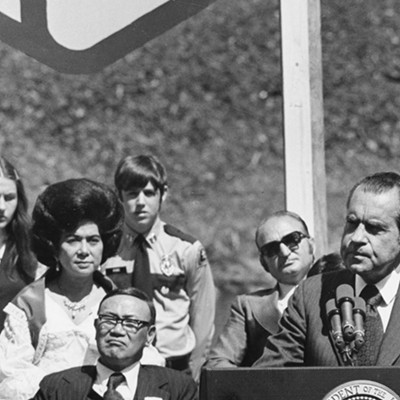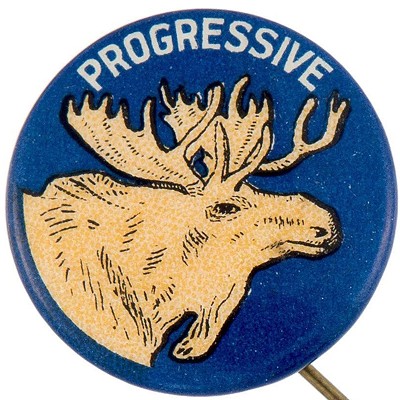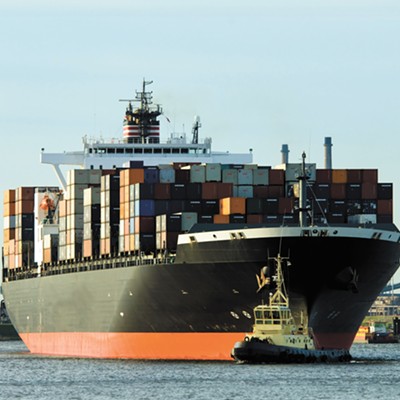The Russian invasion of Ukraine drew nearer to NATO territory last week when Russian naval forces fired warning shots and boarded a commercial vessel in international waters off the northwest coast of Turkey. Russia recently pulled out of a deal brokered by the UN and Turkey in 2022 to allow Ukraine to export its grain harvest. Ukraine is a major supplier of the world's grain, and the end of the deal with Russia threatens a humanitarian crisis in food insecure regions in the Middle East and Africa. Russia followed its withdrawal from the agreement by hammering port and grain storage facilities in Ukraine.
Russian authorities claim that the Palau-registered cargo ship Sukru Okan was bound for Ukraine and failed to stop for inspection. Russian sailors opened up with small arms fire to warn the Turkish-owned ship before boarding the vessel from a helicopter. The ship was actually bound for the Romanian port of Sulina, which has become a critical backchannel for exporting Ukrainian grain since the end of the deal with Russia. Romania and Turkey are both members of NATO, whose members are bound to defend one another's territory from attack.
This latest example of reflexive Russian belligerence threatens the misery and starvation of countless people and the apocalyptic escalation of the war. In keeping with Putin's glittering record of strategic failure in his war, the Russian blockade of Ukraine will ultimately prove self-defeating.
The early history of the United States helps us to see how maritime blockades can quickly escalate into armed conflict. During the Revolutionary War, the British Empire hoped to starve the Continental Army of supplies by using the mighty Royal Navy to interdict America's overseas trade. This meant not just searching and seizing cargoes from American ships, but also boarding neutral ships from any country trading with the United States. This strategy ended up causing headaches for the British government, as a long list of European nations, from Russia and Norway in the north to Austria and Portugal in the south, formed the League of Armed Neutrality to resist the Royal Navy's heavy-handed intervention in maritime trade.
The British Empire did not learn its lesson. When the French Revolution plunged Europe and its colonies into a quarter-century of war, Britain and France became locked in a death struggle that forced the nations of the Atlantic world to pick sides. The United States refused. President George Washington issued a neutrality proclamation in 1793. American merchants exploited their neutral status to pick up trade from their European competitors. But it also meant that U.S. cargo ships fell prey to both the French and British navies, who were determined to starve one another into submission.
This latest example of reflexive Russian belligerence threatens the misery and starvation of countless people and the apocalyptic escalation of the war.
tweet this
After Great Britain's victory over the combined French and Spanish fleets at the Battle of Trafalgar in 1805, the Royal Navy became the lead aggressor. British sailors boarded American vessels to search for contraband cargoes bound to or from France and its colonies. They also sought deserters from the Royal Navy among the American crews; many genuine deserters obtained bogus U.S. passports and worked in the American merchant marine. British violations of American neutrality led to public outcry, which President Thomas Jefferson looked to manage, before his successor, James Madison, was left with little option but to ask Congress to declare war on Great Britain in June 1812.
The British Empire never intended to go to war with the United States. London's eyes were fixed firmly on the war against Napoleon in Europe. The last thing the British government wanted was the costly distraction of fighting in North America. Yet, this is exactly what they got. While the main effort of the British Army remained in fighting the French in Spain, the American theater wasted manpower and resources that would have been better spent on defeating Napoleon.
No one who values the rule of law wants to see Russia win this horrific war of aggression in Ukraine. Russia's strategic errors are usually something we can celebrate. But in the case of the Russian blockade of Ukrainian ports, Putin's foolhardy decision to exit the grain deal with Ukraine is a blunder with potentially catastrophic consequences. The grain blockade cannot succeed in breaking the Ukrainian economy, given the weakness of Russia's Black Sea Fleet. But Russian interference with neutral shipping might end up dragging Russia into a broader conflict with NATO that threatens the possibility of nuclear war. ♦
Lawrence B.A. Hatter is an award-winning author and associate professor of early American history at Washington State University. These views are his own and do not reflect those of WSU.




















